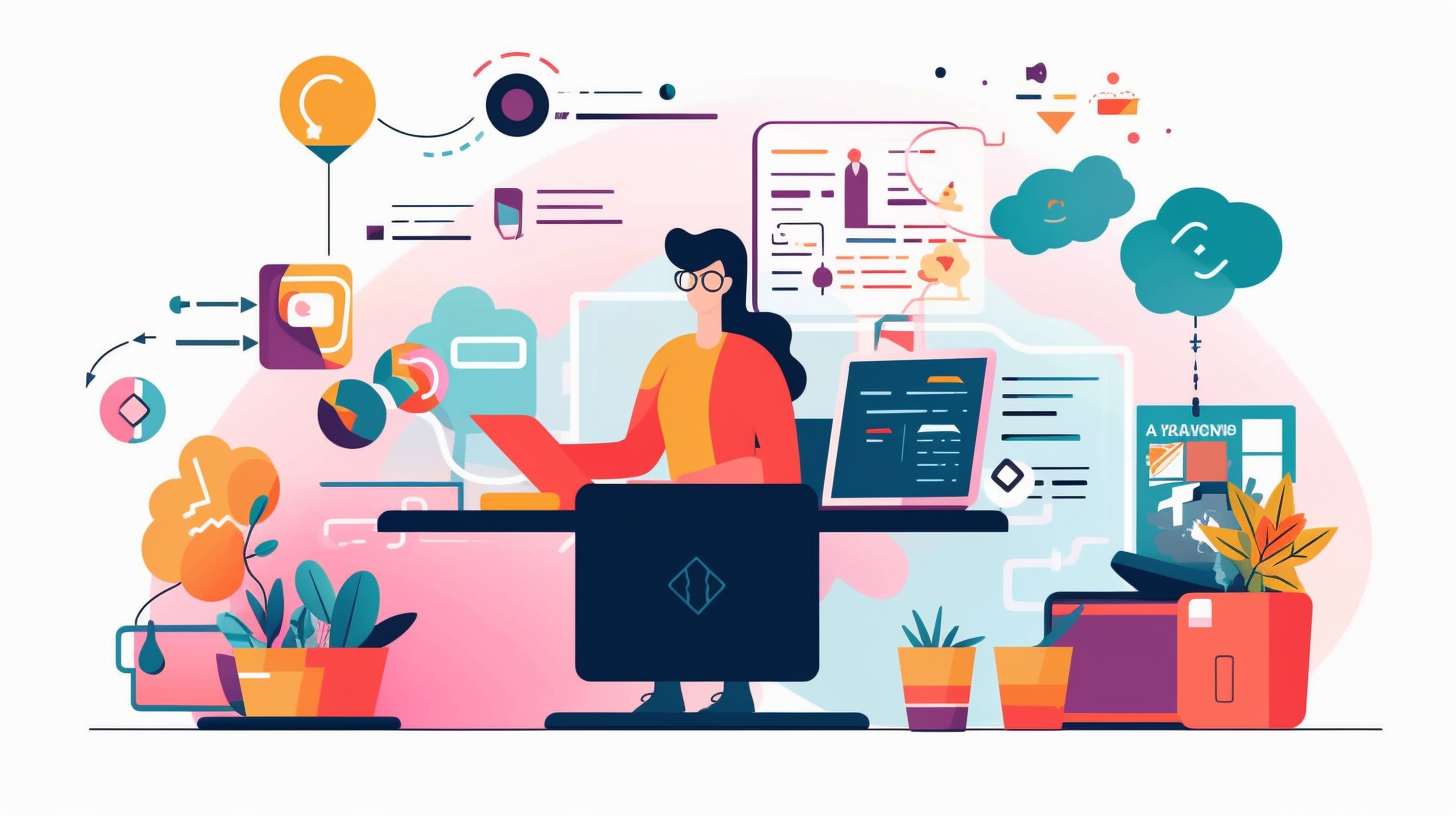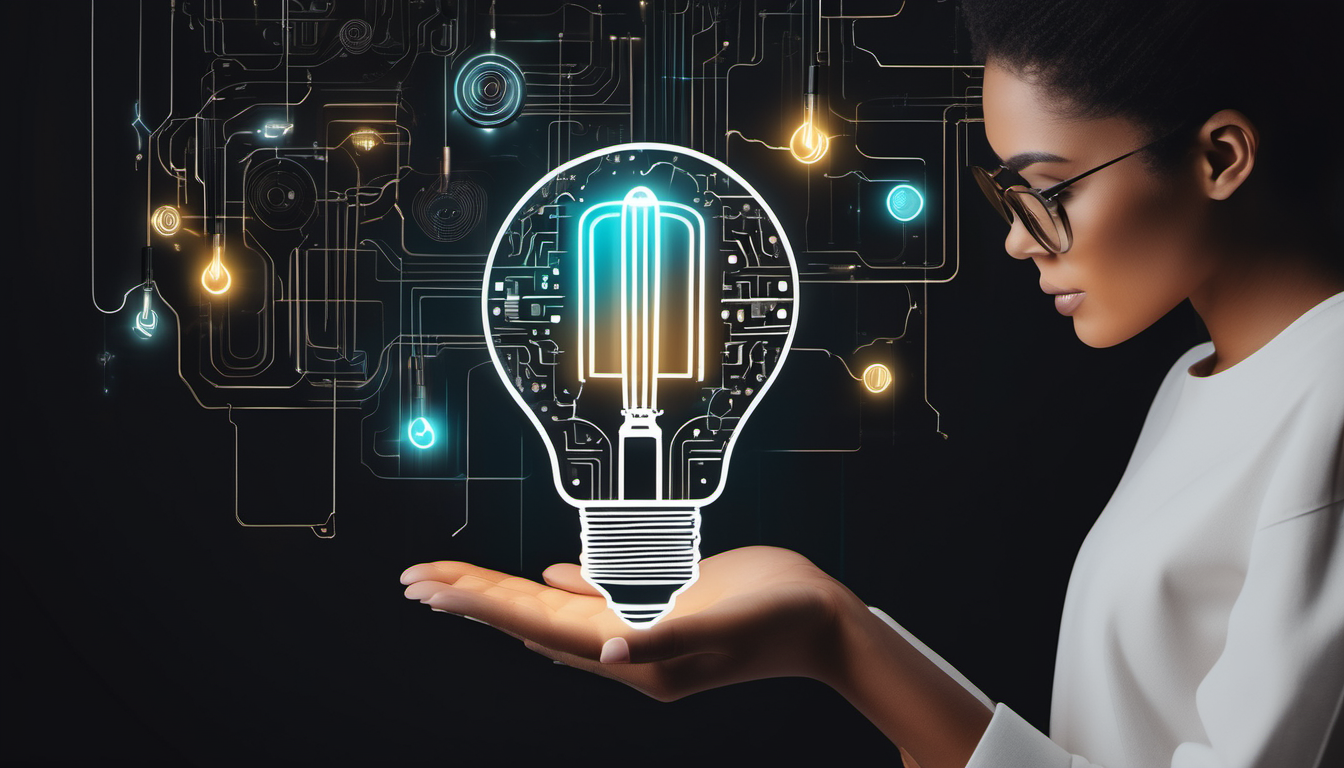Taking Blogging to the Next Level with AI-Assisted Content Creation
In today's digital age, bloggers and content creators are constantly looking for ways to enhance their craft, attract more readers, and stay ahead of the competition. One of the ways to achieve this is by leveraging the power of artificial intelligence (AI) to assist in content creation. This article explores how AI-powered tools can help bloggers and content creators take their work to new heights, improving efficiency, creativity, and overall output. Table of Contents
- AI in the Digital Age
- Benefits of AI-Assisted Content Creation
- Top AI-Powered Tools for Content Creators
- Integrating AI into Your Content Creation Process
- Potential Challenges and Ethical Considerations
- Frequently Asked Questions (FAQs)
AI in the Digital Age
Artificial intelligence is rapidly changing various industries, and content creation is no exception. AI-powered tools have the ability to process vast amounts of information in a relatively short period, providing insights that were previously difficult to obtain. These tools help in idea generation, enhancing readability, improving search engine optimization (SEO), and much more.
Machines vs. Humans: A Complementary Relationship
It is important to recognize that AI should be viewed as a supplement to human creativity, not a replacement. While machines can provide valuable assistance, human intuition, empathy, and creativity remain indispensable. The objective is to combine the strengths of AI with human skills, resulting in a more effective and captivating content creation process.
Benefits of AI-Assisted Content Creation
1. Efficiency and Time Savings
AI-powered tools can handle monotonous tasks such as data collection, research, and formatting, making it easier for content creators to concentrate on idea generation and storytelling. This saves time and improves overall efficiency, allowing creators to produce more content in less time.
2. SEO Optimization
Search engine optimization is a crucial aspect of content creation. AI tools can provide real-time suggestions to optimize content according to the latest search engine algorithms, helping creators rank higher in search engine results and attract more organic traffic.
3. Improved Readability and User Experience
AI-assisted content creation tools can analyze text to ensure higher readability scores by identifying complex sentences, jargon, and other issues that may reduce user engagement. By providing real-time analysis of written content, these tools enable bloggers to enhance user experience through more readable and engaging content.
4. Content Personalization
Artificial intelligence allows the tailoring of content to individual user preferences. By analyzing user behavior data, AI enables content creators to deliver more targeted and personalized experiences, enhancing user engagement and improving conversion rates.
Top AI-Powered Tools for Content Creators
There are numerous AI-powered tools available for content creators, each offering unique benefits. Here are some of the most popular toolscurrently in the market:
- Jarvis.ai (formerly known as Conversion.ai) - An AI-powered writing assistant that helps with content generation, blog post ideas, SEO, and more.
- Grammarly - An AI-driven grammar and spell-checking tool that offers real-time suggestions to improve writing clarity, engagement, and correctness.
- MarketMuse - An AI-powered content optimization platform that suggests topics, subheadings, and keywords based on content strategy and user intent.
- TextOptimizer - A tool that uses AI to analyze existing content and provide recommendations for improvement, including suggestions for better keywords and phrases.
- Google Duplex - An AI-based technology that can help with scheduling tasks, researching, and even generating human-like conversations to aid with content development.
Integrating AI into Your Content Creation Process
To maximize the benefits of AI-assisted content creation, it is essential to strategically integrate these tools into your content creation process. Here are some suggested steps:
- Idea generation: Use AI tools to gather relevant data and generate topic ideas, which can significantly reduce the time spent brainstorming content themes.
- Content optimization: Leverage AI tools to optimize your content for search engines, ensuring maximum visibility and organic traffic.
- Editing and proofreading: Use AI-powered grammar checkers and readability tools to polish your content, eliminating errors and improving its overall quality.
- Personalization: Employ AI to personalize content based on user preferences, creating a more engaging and relevant experience for your audience.
- Analytics and improvement: Utilize AI-driven analytics tools to track content performance, providing insights that can help refine your content strategy and enhance your overall output.
Potential Challenges and Ethical Considerations
While AI-driven content creation offers numerous benefits, there are potential challenges and ethical considerations that need to be addressed:
- Loss of personal touch: Over-reliance on AI-generated content may risk a loss of the author's unique voice and personal touch, negatively affecting the authenticity and connection with the audience.
- Plagiarism: AI-generated content may unintentionally reproduce previously published material, putting creators at risk of duplicate content issues and potential plagiarism allegations.
- Ethical concerns: The usage of AI in content creation raises ethical questions surrounding the implications of automating human tasks, potentially leading to job displacement and an overdependence on technology.
It is important for content creators to strike a balance between leveraging AI's advantages while remaining mindful of potential pitfalls. The objective should always be to enhance human creativity, not replace it.
Frequently Asked Questions (FAQs)
Share this
You May Also Like
These Related Stories

AI Writing Ideas to Supercharge Your Creative Process

Create Brilliant Blog Posts with GPT Technology: A Comprehensive Guide




